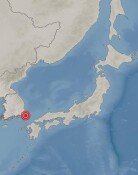Trans-Pacific Partnership
Negotiations for the Trans-Pacific Partnership, a multilateral free trade agreement comprising 10 countries including the U.S. and Japan, will likely begin next year. U.S. President Barack Obama said Sunday before the Asia-Pacific Economic Cooperation summit in Honolulu, Hawaii, that he hopes to finalize an agreement next year. The negotiations could prove difficult because the agreement is a multilateral deal. If finalized next year, however, it will give birth to the worlds largest economic bloc that will exceed the size of the European Union.
The Trans-Pacific Partnership is a high-level free trade deal effectuated by Singapore, Chile, New Zealand and Brunei in 2006. As the U.S., Australia, Malaysia, Peru and Vietnam have joined the deal, the group is becoming a trade bloc for the trans-Pacific region. Japan announced its participation in the negotiations Friday. Despite strong opposition from the ruling Democratic Party of Japan as well as opposition parties, the Japanese government says its participation is unavoidable in the pursuit of economic recovery through exports and prevents the exodus of Japanese manufacturers. Having watched with envy Koreas conclusion of a series of free trade deals with major economies such as the European Union and the U.S., Japan has taken an aggressive stance toward free trade.
Japan is trying to check Korea and China in the competition for leadership in Northeast Asia and strengthen its economic alliance with the U.S. Tokyos strategy is to take advantage of Washingtons active intent to participate in the Trans-Pacific Partnership to keep Beijing in check. China complained that it was not invited to the partnership and learned about Japans participation only through media reports. Beijing is worried over losing out in the competition for leadership in the regions economy and trade.
Despite the rapidly changing situation, Korea appears to have a leisurely attitude toward the Trans-Pacific Partnership. It will be deplorable if the bipartisan struggle in the National Assembly blows the opportunity to benefit from the Korea-U.S. free trade deal by quickly effectuating it. Seouls trade officials are reluctant to participate in the Trans-Pacific Partnership, claiming its economic benefits are not great. It is wrong to think that Koreas free trade agreements with the EU and the U.S. are sufficient. Just as Seoul expects the deal with Washington will increase bilateral trade and investment, enhance Koreas economic structure and strengthen bilateral ties, the Trans-Pacific Partnership will also likely produce huge economic and non-economic benefits.
At a time when the negotiations for the Trans-Pacific Partnership, which is projected to have an enormous impact on the international trade order, are about to begin, the government should not just sit back and watch. The partnership ensures greater openness than Koreas free trade deals with other economies. If Korea has the chance to participate in the Trans-Pacific Partnership, it should make its voice heard from the early stage. Korea simply can no longer remain complacent over leadership on free trade.







